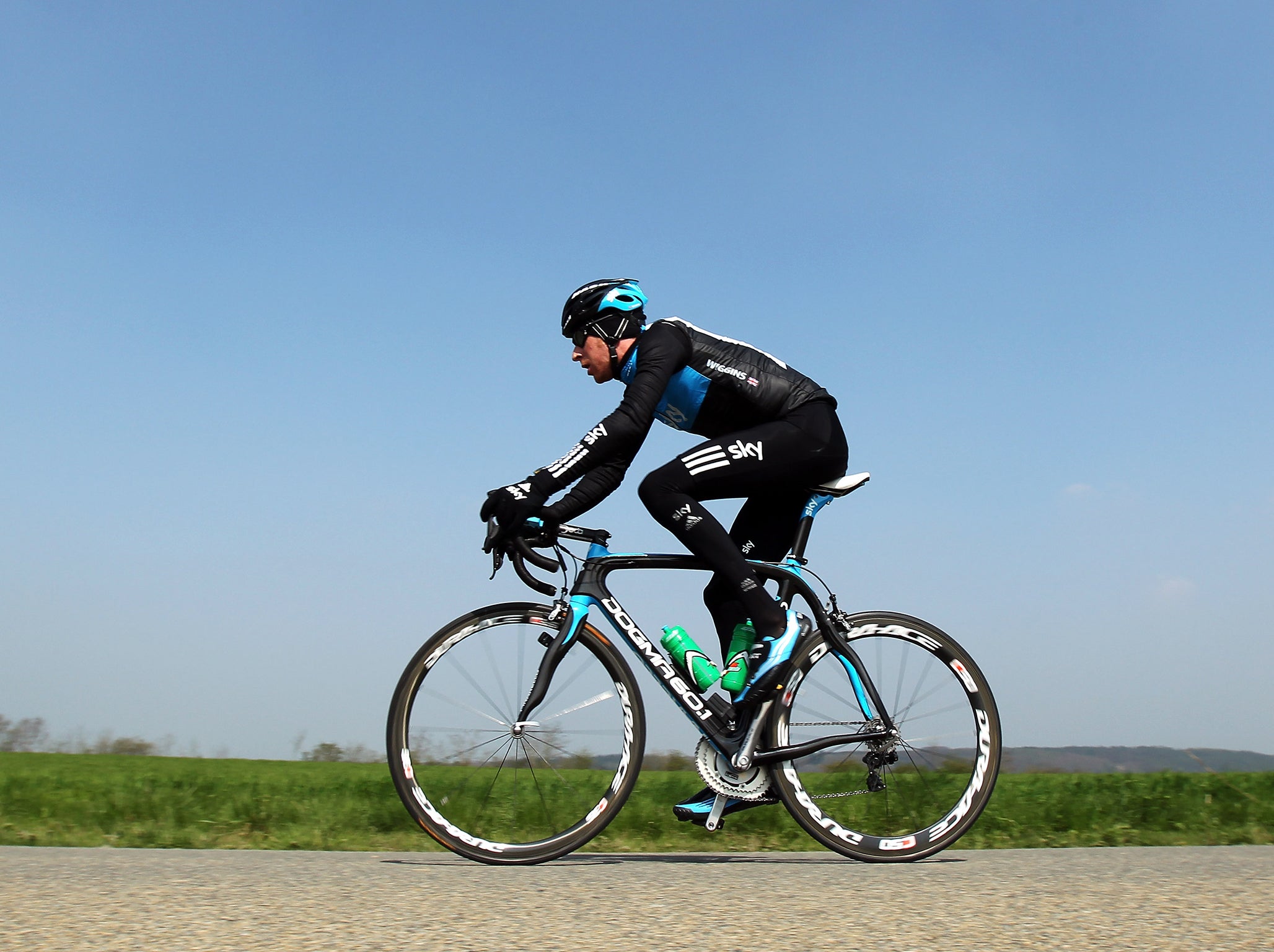Don't imagine sport was any purer in Sir Roger Bannister's day than Sir Bradley Wiggins's
If you want to imagine sport was altogether purer in the 1950s, then you’ll have to ignore the strychnine, cocaine, amphetamine and goodness knows what else that powered the Tour de France


You have probably read, by now, that on the morning of the day in 1954 that Sir Roger Bannister made sporting history by running a sub-four minute mile, he worked his shift at a hospital in London, before catching a train to Oxford for the race.
The obituaries to this great man and this singularly great achievement that have filled the morning papers and the airwaves paint a picture of a simpler, less professionalised time.
They explain how, not long after achieving a feat of human endeavour long considered impossible, Roger retired from his unpaid sporting hobby to concentrate full time on a career in medicine, becoming a world leading neurologist.
It is unfortunate that the death of one national sporting hero should coincide with the denigration of another. A report by a committee of MPs makes damning allegations against Sir Bradley Wiggins. The most damning is that, in 2012, when he became the first British Tour de France winner, he did so having taken triamcinolone, a powerful corticosteroid to treat his asthma. A medical expert told the committee it was “bonkers” to treat asthma with triamcinolone. Though no rules have been broken, Wiggins’ former coach Shane Sutton said the use of the corticosteroid was “unethical”.
It is a tempting juxtaposition, already made by many media commentators. Monday morning’s Today programme ended with a discussion between John Humphrys and Brendan Foster, using Sir Bradley and Sir Roger to debate the relative merits of sport’s amateur and professional eras.
On the one hand, there was the simple unremunerated glory of amateur pursuits. On the other, a murkier world where the pursuit of excellence has become aligned with the pursuit of cash, and moral boundaries are at best blurred, at worst, crossed with impunity.
But the comparison is imperfect for many reasons. First of all, in those simpler days in which Sir Roger caught the train to Oxford, Tour de France riders regularly competed with ether-soaked handkerchiefs under their noses. They even had a name – a topette. Strychnine, cocaine, amphetamine, alcohol were all commonplace. A number of riders almost died at the roadside, then upon recovery, trumped up mad charges of “attempted murder” against coaches and others, rather than admit to the terrifying cocktails of drugs they were routinely taking.
Most of the obituaries to Sir Roger also mention his pacemakers that day, Chris Chataway and Chris Brasher. Brasher would go on to became a leading sports journalist and businessman, co-founding the London Marathon. Chataway, or rather Sir Chris Chataway, a news broadcaster and Conservative MP.
All three were Oxbridge graduates, whose relatively comfortable upbringings allowed them to pursue their hobby with an intensity not available to those less fortunate. But just as significantly, their remarkable sporting achievements were not enough to build a life upon, as they almost certainly would be now.
How many decades before might Sir Roger’s landmark achievement occurred had the pursuit of it not been the preserve of well-to-do Brits, Americans and Australians? Had the political and financial capital of sporting success drawn in policymakers in Kenya, Ethiopia and elsewhere rather earlier than it did, Sir Roger might not be remembered at all.
That kind of change is undoubtedly a good thing, but now big money and big politics threaten to overwhelm sports like never before, the pressure falls most of all on audiences.
It will be up to the fan to decide how much he or she cares about whether what they watch is a chimera.
The boss of Wiggins’s Team Sky, Sir David Brailsford, became famous the world over for his pursuit of “marginal gains”. For example, during the Tour de France and other races, his riders would have their own, familiar beds bussed ahead of them and set up in whatever hotel they were staying.
Are we meant to be surprised that such a team would exploit the rules to their very maximum capacity? Should the fan feel short-changed by this? That is, almost, a matter of personal taste.
On Sunday, Chelsea played Manchester City, in one of the biggest games of the Premier League season. Manchester City’s Catalan manager, Pep Guardiola, wore a yellow ribbon in support of leading figures in the Catalan independence movement currently held in Spanish prisons. It is up to audiences how much they want to overlook the fact that it could certainly be argued his principal role as Manchester City manager is as a reputation-laundering service for the club’s autocratic owners from the Abu Dhabi royal family. At least 200 political prisoners are currently held in UAE jails.
They also have to decide how much they care about Guardiola’s four-month doping ban when he was a player. How much do audiences care that, according to a haematologist who testified at the time, it is “practically certain” that Chelsea’s now manager, Antonio Conte, took EPO to recover from injuries while playing for Juventus?
This coming weekend, to the sound of deafening cheers from the stands, a Six Nations rugby player is highly likely to sustain some sort of head impact injury that, according to growing medical consensus, will affect his brain function in later years.
Sport is in moral crisis everywhere, and always has been. There is no rosier time to look back upon, and no rosier future. The only place meaningful introspection can occur is with the fan, be it in the stadium or in front of the expensively acquired subscription TV package. How much do you care?
Join our commenting forum
Join thought-provoking conversations, follow other Independent readers and see their replies
Comments